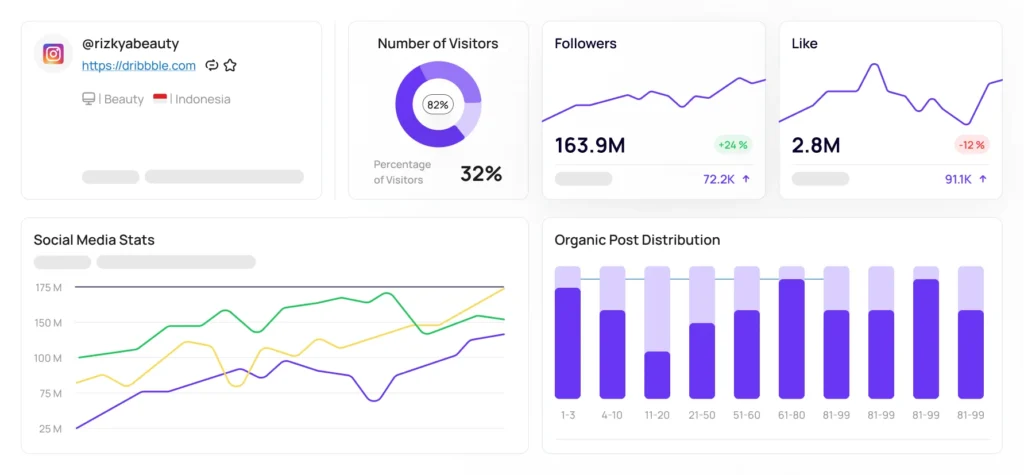
In the dynamic landscape of nonprofit organizations, the effective use of Customer Relationship Management (CRM) systems emerges as a gamechanger in strategic decision-making. These entities which grapple with copious amounts of data from donors, volunteers, and beneficiaries, can harness the power of a well-implemented CRM system to convert this data into actionable insights that drive positive change.
Centralized Data Management
Central to this transformative process is the concept of centralized data management. Nonprofit organizations, often dealing with data streams from diverse sources such as fundraising campaigns, events, and outreach programs, stand to benefit immensely from a Nonprofit CRM’s ability to consolidate and streamline this information. Acting as a central repository, the CRM provides a panoramic view of interactions with donors, volunteers, and beneficiaries. This consolidation translates into improved operational efficiency, enhanced decision-making capabilities, and fortified relationships with key stakeholders.
Collaboration and Knowledge Sharing
Collaboration and knowledge sharing are foundational elements in the realm of strategic decision-making within nonprofits. Nonprofit CRMs play a vital role in fostering a culture of collaboration through their embedded features. These features facilitate knowledge sharing, thereby improving communication and creating a more connected and efficient work environment. When seamlessly integrated and optimally utilized, these CRM-driven collaborative efforts become catalysts for overall organizational efficiency and success.
Integration with external data sources
The integration of external data sources is a strategic move that elevates decision-making to new heights. Nonprofit CRMs that seamlessly allow integration with external data sources enable organizations to enrich their internal data with external demographic, economic, or industry-specific information. This fusion of diverse data sources provides nonprofits with a clearer understanding of their operating environment, facilitating more informed, data-driven decision-making aligned with current realities.
Adaptability and Scalability
Adaptability and scalability emerge as non-negotiable considerations in the realm of Nonprofit CRMs. The strategic choice and implementation of a CRM with these qualities allow organizations to establish a foundation that not only meets present needs but also remains agile enough to accommodate future growth, changing strategies, and evolving operational requirements. Regular assessments and updates ensure that the CRM evolves in tandem with the organization’s goals and mission, laying the groundwork for sustained success.
Data Security and Compliance
Data security and compliance take center stage when handling sensitive information within CRM systems. Nonprofit organizations must implement robust measures to secure data and ensure compliance with relevant regulations. By safeguarding the integrity and confidentiality of critical data, nonprofits lay a foundation for strategic decision-making built on trust and privacy.
Predictive Analytics & strategic decision-making
The integration of predictive analytics introduces a forward-looking dimension to nonprofit decision-making. Advanced CRMs equipped with predictive analytics forecast donor behavior, campaign success, and program impact. This capability empowers organizations to make strategic decisions based on a deeper understanding of future trends, enabling efficient resource allocation and maximizing impact.
Program Impact Assessment
Program impact assessment becomes a seamless process with the aid of Nonprofit CRM systems. These CRMs allow organizations to meticulously track and measure the impact of their programs. Regularly reviewing and analyzing CRM data, adapting strategies based on findings, and effectively communicating impact are integral components of a successful program assessment. Leveraging the capabilities of a Nonprofit CRM not only quantifies program success but also translates insights into enhancements for the overall mission and objectives.
Conclusion
In conclusion, Nonprofit CRMs serve as transformative tools, converting raw data into actionable insights that shape strategic decision-making. Through effective utilization, nonprofits can enhance stakeholder engagement, optimize resource allocation, measure impact, and ultimately make a positive difference in their communities. The adoption and strategic integration of a Nonprofit CRM like SimplyNP represents not just a technological upgrade but a commitment to informed, impactful decision-making that propels organizations toward their overarching missions.